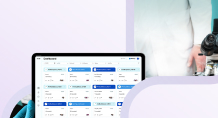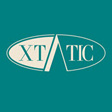The HITECH Act, short for Health Information Technology for Economic and Clinical Health Act, established in 2009, revolutionizes healthcare by promoting the use of electronic health records (EHRs).
How does that improve the overall healthcare experience for patients? It ensures the secure handling of medical data, safeguarding their privacy. Compliance is key — not only does it boost healthcare efficiency, but it also shields providers from penalties while offering incentives for proficient EHR usage.
In this article we will cover everything from what exactly is the HITECH Act for Medical Records in detail to how to stick to maximal adherence.
Definition of the HITECH Act
The Health Information Technology for Economic and Clinical Health Act, commonly known as HITECH, builds on the Health Insurance Portability and Accountability Act of 1996 (HIPAA). This is known to be the first federal law to address the security and accessibility of health information in the U.S.
Enacted in 2009, HITECH makes it simpler and more affordable for patients to obtain their medical records.
The HITECH Act is a law designed to upgrade U.S. healthcare by achieving five main goals:
- Enhancing care quality and efficiency;
- Getting patients more involved in the process;
- Better coordinating care;
- Improving public health;
- Ensuring strong data privacy and security provisions.
This act is all about boosting the use of digital health records and expanding Health Information Exchanges. It’s also about toughening up the rules on patient data privacy set by the HIPAA Act and making sure people stick to them with stricter penalties for violations. Basically, HITECH is aimed at making healthcare a whole lot better, safer, and more centered on patients.
HITECH applies to every healthcare provider getting into electronic healthcare transactions, like sending insurance claims via email. It covers everyone providing, billing, or getting paid for healthcare services electronically.
Additionally, thanks to the HITECH Act, patients can easily ask for their medical records, also known as protected health information or PHI, just by using a written request to their healthcare provider. There is no need for a special form, and the only requirement is that the provider can reasonably verify the identity of the requester through methods like a signature and date of birth. Providers must respond to these requests within 30 days.
Significantly, HITECH also regulates the fees for accessing PHI. Providers must offer access at the actual cost, meaning they cannot charge the per-page fees some local laws may permit. Patients may also opt to receive their records in an electronic format, often for a minimal fee, such as receiving electronic records on a CD for approximately $6.50.
Furthermore, it permits patient representatives, including lawyers, to request medical records, potentially saving costs for clients.
Simply put, HITECH serves as an essential resource for patients seeking access to their health information. Let’s see what was the purpose of introducing the HITECH Act right from the beginning to dive deeper into its essence.

Discover how we can help outsource Healthcare projects efficiently
Speak to an expert today, and see how our on-demand IT talent and augmented teams can efficiently deliver value at every step of your roadmap.

Purpose of the HITECH Act
A curious fact is that before introducing the HITECH Act, only 10% of hospitals in the U.S. had adopted the already mentioned EHRs or electronic health records. These records serve to advance healthcare by improving its efficiency and care coordination. They also make it easier for health information to be shared between different entities.
Many healthcare providers were ready to switch from paper to electronic health records (EHRs), but the cost was too high. The HITECH Act came in with incentives to help hospitals and other medical providers make that switch. Without this Act, many would still be stuck using paper records. This change not only speeds up care and helps avoid mistakes but also addresses patient privacy and security concerns with stricter security measures. It’s all about making healthcare safer, quicker, and more reliable for everyone.
To be more specific about the idea behind EHRs, they give quick access to patient data, which helps fast decision-making and reduces medical errors by keeping accurate information available. They also ensure better coordination among healthcare workers, allowing the sharing of patient information across different care settings.
What’s more, EHRs empower patients by providing them easy access to their own medical records, supporting improved health outcomes and better involvement in personal health management.
The Act also makes sure that healthcare organizations and their partners follow the HIPAA Privacy and Security Rules. This included protecting patient information, limiting how it’s shared, and making sure patients could get copies of their records when they asked. This information will be mentioned in more detail further in this article.
While following HIPAA rules was already required, the HITECH Act added a new rule. Now, if there’s a data breach, it has to be reported. This change has allowed the Department of Human Services’ Office for Civil Rights to more aggressively go after those who don’t comply.
The Impact of Electronic Health Records
To appreciate the impact that Electronic Health Records (EHRs) have had on revolutionizing the healthcare sector for all parties involved, we must go deeper.
Consider a patient with diabetes who sees multiple specialists on a regular basis, including a cardiologist, endocrinologist, and primary care physician. Before electronic health records (EHRs), every specialist kept their own set of paper records. This resulted in inconsistent care and the neglect of important details that were crucial to the patient’s overall care.
EHR adoption, however, has altered everything. It is now possible for all specialists to examine and amend the same electronic patient record at the same time. This guarantees that all physicians are up to date on the most recent test findings, prescription modifications, and treatment recommendations. This kind of cooperation is essential because it prevents negative drug interactions.
Overall, EHRs streamline communication between healthcare providers, enhancing the quality of care for patients with complex medical needs.
In conclusion on the topic of EHRs, we will give one more short example.
In a large hospital, EHRs were introduced to track patient vaccinations during flu season. Nurses used to write down vaccinations by hand in patients’ files before EHRs. This was tedious and error-prone. The EHR automatically updated the patient’s record once a nurse entered the vaccination information into the system. This helped ensure greater precision and accuracy. The hospital could monitor how many vaccinations had been given in real-time, thereby improving adherence to the public health protocols.
Compliance and Security Measures
After understanding its core principles of the HITECH Act, it’s time to explore the specifics of compliance and security measures.
The Act mandates healthcare facilities not to adopt health record (EHR) systems but also to utilize them in a manner that enhances patient care and safeguards their private data. This entails training all healthcare personnel on the use of these systems and conducting regular assessments to ensure smooth and lawful operations.
Sticking to these guidelines enables healthcare providers to steer clear of violations and penalties. At the same time, they are becoming eligible for government incentives aimed at promoting technology utilization in healthcare.
Security measures play a role under the HITECH Act given the nature of personal health information. Healthcare providers are required to establish defenses against access to EHRs. This involves encrypting data for unreadability by individuals utilizing connections for transmitting patient data and consistently updating security protocols to counter emerging threats.
Additionally, healthcare staff receive training on handling this information and are educated on the significance of upholding confidentiality and security in their daily tasks. These stringent security practices help maintain the confidentiality and integrity of information. Ultimately, this fosters trust in the healthcare system while aligning with HITECH Act mandates.
Patient Access and Privacy Rights
One of the key segments of this topic is concerning the access to patients’ personal data and who has the rights to it. Since its establishment, the Department of Health and Human Services (HHS) has updated HIPAA with new regulations. The aim was to enhance the safeguarding of protected health information (PHI) for covered entities and their business partners.
The key regulations governing the routine disclosure of information are the Privacy Rule and the Security Rule.
What’s important here is to explain who are considered covered entities and business associates in this whole process. HIPAA defines covered entities as health plans, healthcare clearinghouses, and health care providers that electronically transmit health information in ways that comply with standards set by the HHS.
HIPAA rules also cover business associates who require access to medical records in order to assist these covered entities. The important aspect is not their access to patient health information, but rather that they are providing services to the covered entities.
The two mentioned parties must do the following:
- Secure their communication channels;
- Conduct risk assessments regularly;
- Train employees on privacy policies;
- Employ encryption methods to protect data.
HIPAA requires that business associates sign a Business Associate Agreement before performing services for a covered entity that may expose them to PHI. Some examples of business associates include outside lawyers, IT specialists, accountants, software companies who handle protected health information, and others involved in patient data.
The HIPAA Privacy Rule
The Privacy Rule is important with its role in protecting individual privacy while allowing the necessary flow of health information to ensure high-quality health care.
It builds patient trust in the healthcare system by giving patients control over their information. They can decide who sees their health data, request corrections to their records, and obtain reports on who has accessed it.
This not only helps individuals maintain privacy and autonomy over sensitive health details but also encourages them to seek treatment and share information with healthcare providers without fear of unauthorized disclosure.

Deliver a world-class Healthcare project–with high-skilled, seamlessly integrated IT talent
Learn how from our consultants. We work with clients worldwide.
The HIPAA Security Rule
The HIPAA Security Rule was newly introduced in 2005. It is composed of a combination of technical, administrative, and physical guidelines that are aimed at safeguarding electronic protected health information .
The reason for the enactment of the Security Rule was the increasing number of healthcare practitioners who adopted the use of electronic medical records. The Rule provides for the minimal security levels that may be operated by the practitioners.
This is only applicable if the state does not have harsher policies that should abide by them under any prevailing circumstances.
The Breach Notification Rule
The HIPAA Breach Notification Rule lays out the steps for handling breaches of medical records and sets a required process for covered entities to follow.
The definition of a breach includes any unauthorized acquisition, access, use, or disclosure of unsecured PHI that compromises the security or privacy of that information.
First, a risk analysis is conducted to assess the potential harm to patients’ privacy. This includes considering factors like the type of information exposed and who accessed it. For instance, if patient data is sent to the wrong fax number, it can’t be retrieved, posing a significant risk to privacy.
Once stolen, patient information could be exploited by criminals, putting individuals at risk of identity theft or other harm. Therefore, such incidents are treated as high-risk breaches under the rule.
Interoperability and Data Exchange
Unlike previous standards, which impeded the flow of information among various systems, the HITECH Act regulations demand that data should be easily accessed and exchanged, even among different care providers.
This means that you get to save the hassle of having to re-process your medical records because they can now be securely shared with different healthcare providers like doctors, hospitals, and even other relevant organizations. This resembles having an electronic file of your health information, data to which you can add anything or take it any time and place you want. This makes care more cohesive, the chances of medical errors are reduced, and as a result, overall improvement in patient outcomes is ensured.
Suppose you are undergoing a routine check-up at your family doctor and the doctor suggests that you need to see a specialist for further examination. With the help of interoperability and data exchange, this medical information can be shared electronically with your EVS doctor. They, in turn, see it being transmitted across to the specialist for further decision-making.
As soon as you land at the consultants’ clinic, the management has all the information they require which would help them to provide you with the care you need. This process of trading information is not only time-saving but also guarantees no repeated tests by different health providers. Instead, it gives all of them the same information for proper healthcare decisions.
The Evolving Regulatory Landscape
The HITECH Act made it necessary for business partners of HIPAA-covered groups to sign agreements and promise not to share patient information except as allowed by HIPAA. They also had to follow HIPAA Security Rule guidelines, including using methods to keep electronic patient information secure.
The term “business associate” was broadened to include any organization that does work for or with a Covered Entity and involves sharing patient information. The HITECH Act also made these business associates responsible for following HIPAA rules and facing penalties if they didn’t.
HIPAA-covered groups could face fines if they didn’t properly check their business partners’ security measures before sharing patient information.
HITECH also changed how penalties for HIPAA violations are determined. Before, fines were only issued if a breach happened due to deliberate negligence, but now there’s a four-tier system with different penalties based on the severity of the violation.
This four-tier system of possible violations includes lack of knowledge, lack of insight, willful neglect and willful neglect not corrected within 30 days of notice. The maximum financial penalty for a HIPAA violation was increased to $1.5 million per violation category, per year. Since 2016, the fines have been adjusted annually to account for inflation; and, as of December 2023, the maximum financial penalty per violation is now $2,067,813 per year for the last violation, willful neglect not corrected within 30 days of notice.
In 2018, the Department for Health and Human Services asked for feedback on reducing HIPAA compliance hassle and improving healthcare coordination through better data sharing. Many healthcare groups asked for protection from penalties if they followed security rules during a data breach.
In response, the HITECH Act was amended in 2021, allowing the HHS to be lenient on penalties if the negligent party had a recognized security plan in place for a year before the breach. This change aims to encourage better security practices and smoother data sharing in healthcare.
In summary, HITECH applies only when patients themselves request their medical records in writing. This includes requests made directly by the patient or through their designated representative, such as their attorney.
However, if the request comes from anyone else, like an attorney on behalf of the patient, HITECH doesn’t apply, and healthcare professionals can follow state laws for handling fees. That’s why when patients ask for their records, HITECH ensures their rights are protected, but for requests from others, different rules may apply.

















